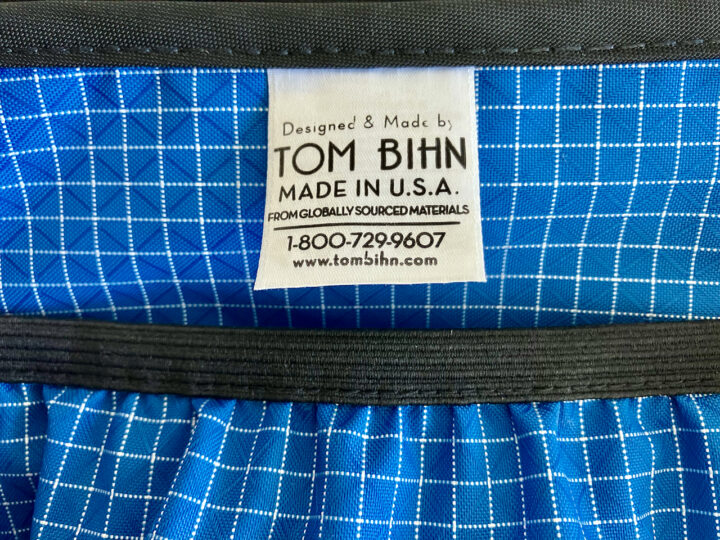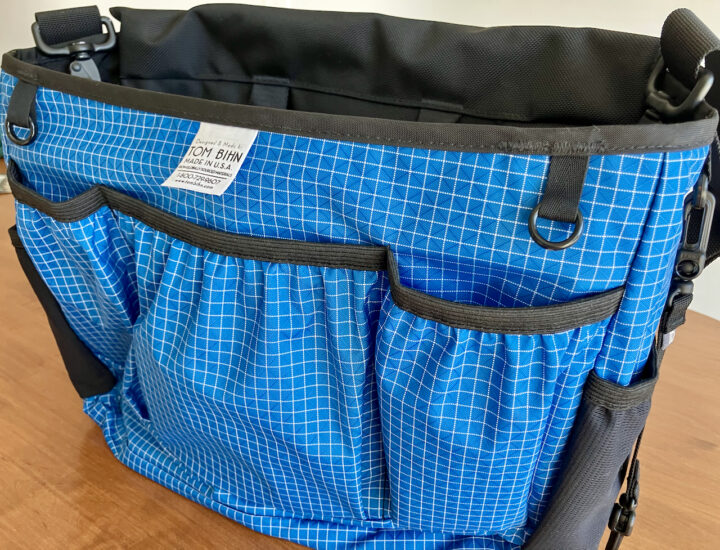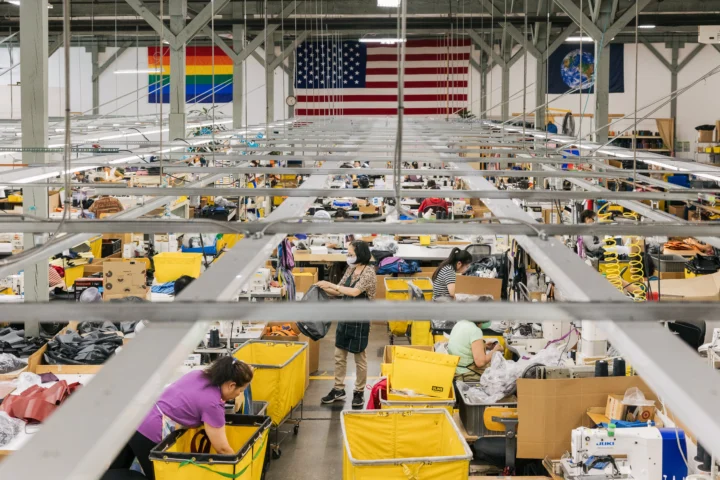I discovered Tom Bihn several years ago when looking for a laptop bag to give as a gift. Finding a well-constructed, Made in USA bag large enough for a laptop and job tools was tough.

When the bag arrived, I thought, “Oooooh, I want one. Maybe I should keep this and find a different gift?” haha
When it came time to purchase a new MacBook earlier this year, I also ordered a Tom Bihn Maker’s bag. It had come time to replace a 30-year old leather tote, which had been handcrafted by Peter Libaire. The tote is still in great condition, but tired due to constant use.
My new Tom Bihn bag has lots of pockets for the things I bring to client meetings. Plus, it’s quite handsome and sturdy.
What I look for in bags: Construction!
Having worked for a small contract sewing company, I learned quite a bit about material types and their properties and how to construct industrial sewn products to withstand constant stress, environmental conditions, etc.
For example, we regularly worked with a 400 denier coated nylon called Cordura. An exceptionally strong and flexible material, Cordura is used for outdoor and marine applications. Because it’s coated, it repels water.
My Tom Bihn bag is constructed of 630 denier, high-tenacity 2×3 ballistic nylon which is woven and finished in South Korea with yarns from Canada. (The company is upfront about using globally sourced materials.) It’s also coated with extra-heavy urethane — making it waterproof.
The seams are heavily reinforced (I believe they used a welted seam); reinforced stitching on the nylon webbing securely holds the buckles and other items in place. The stitching, I might add, is perfect!

One problem with woven fabrics is the seams tend to fall apart unless they’re reinforced. My college backpack, for example, fell apart at the seams due to the stress of carrying heavy textbooks.
For applications where constant stress is an issue, one method for reinforcing is call “bound seams,” where the finished seam is wrapped with thin webbing. This technique prevents the seam from breaking or fraying.
I turned my bag inside out so that you can see how its constructed. One nice feature: The pocket edges are finished with elastic, which allows them to stretch and easily accommodate whatever you’re putting into them.
Overall, the bag construction is top-notch! I know I’ll be carrying this bag for years.

About Tom Bihn
When he was 10 years old, Tom B. asked his parents for outdoor gear. They told him to either get a job to pay for what he wanted or learn how to make it himself. He chose the latter.
His entire family helped: His brother got his grandmother’s old Singer machine up and running, Tom’s mother taught him how to sew, and his dad “provided the foundations of the necessary engineering.”
Tom grew the company from a one-person shop in Santa Cruz, CA to a thriving team now located in Seattle, WA.

The company specializes in high-quality backpacks, travel bags, crossbody bags, tote bags, organizers, and other travel accessories. Everything is designed and hand-crafted in the Seattle workshop using top-grade materials.
To make choosing the right back easier, the marketing team provides a great amount of detail for each bag: materials, specs, number and types of pockets, straps, devices the bag will hold, and accessories. You can read reviews and watch videos, too.
If you still have a question, you can call or email, which is what I did — and a nice person replied pretty quickly. So add excellent customer service as well.
Get the Keep It Made USA newsletter.
Twice monthly; zero spam.
Links
www.tombihn.com — Official Tom Bihn website
Libaire Bags: Vintage made in USA — Keep It Made USA write up
Full Disclosure
I’m not paid nor asked to write about products or the companies that make them. All links in this piece are FREE — meaning, they’re not sponsored or paid for. I buy products, use them, and if I like them, I tell everyone about them.
I do this because my mission is to keep manufacturing jobs stateside. This mission is my way of giving back. We like to think our “small” choices, such as buying a bag made by American workers, won’t make a difference. They do.
